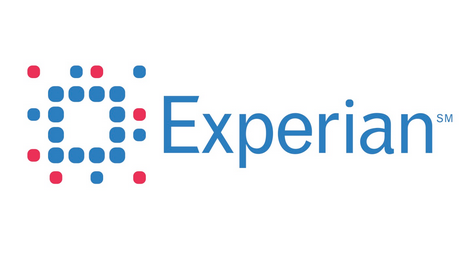All posts by Tony Hadley

There’s no arguing the importance of data to the marketing industry, but it’s equally important for marketers to leverage data in a responsible manner. On March 22, the Data & Marketing Association (DMA) held the Dynamic State of Data conference in Washington, D.C. to highlight critical public policy initiatives the industry is currently engaged in Congress and state legislatures across the country. The conference included remarks from Senator Thom Tillis (R-N.C.) and Federal Trade Commission Chairwoman Maureen Ohlhausen on their views of why data driven marketing is vital to our nation’s economic engine. Additionally, Liz Oesterle, Experian’s Senior Director for Government Affairs and Public Policy, participated in a panel discussion on the DMA’s Data Standards 2.0 initiative. The Data Standards 2.0 will tackle new high profile and emergent data issues, and update DMA’s marketing compliance standards – DMA’s Guidelines for Ethical Business Practice – focusing them to be more relevant for today’s data practices. During the panel, Oesterle outlined why industry self-regulation and the Data Standards 2.0 initiative is critical for responsible information sharing. In addition to providing business and compliance teams with certainty, Oesterle said “self-regulation helps to get in front of potential legislative and regulatory action by demonstrating to policymakers the industry is able to address any potential issues.” Stu Ingis, a Partner at Venable and DMA’s Legal Counsel, also participated in the panel. Ingis provided background on the Data Standards 2.0 initiative and discussed some of the areas in which the updates are expected to address, including cross-device tracking; data security; compliance with health and children’s data privacy; onboarding; and the Internet of Things. \"Experian believes that self-regulation, like the DMA Data Standards 2.0, strengthens consumer protections, allows for responsible innovation and creates regulatory certainty,” said Oesterle. Photo courtesy of: The Data & Marketing Association

 By all accounts, the national housing market in the US stabilized with a recent report showing year-over-year growth at 6.8 percent for October 2015. However, while interest rates remain near all-time lows, it’s estimated that millions of Americans are unable to take advantage of this opportunity because they are unscoreable using the current credit score model mandated by Fannie Mae and Freddie Mac (“the GSEs”).
Under their current guidelines, the GSEs require mortgage lenders to use an older version of a consumer’s FICO credit score when assessing their credit risk. This model is based on data from 1995 to 2000 and unnecessarily excludes millions of qualified borrowers. For instance, VantageScore 3.0 allows for the scoring of 30–35 million more people that are currently un-scoreable under the legacy credit score model.
By all accounts, the national housing market in the US stabilized with a recent report showing year-over-year growth at 6.8 percent for October 2015. However, while interest rates remain near all-time lows, it’s estimated that millions of Americans are unable to take advantage of this opportunity because they are unscoreable using the current credit score model mandated by Fannie Mae and Freddie Mac (“the GSEs”).
Under their current guidelines, the GSEs require mortgage lenders to use an older version of a consumer’s FICO credit score when assessing their credit risk. This model is based on data from 1995 to 2000 and unnecessarily excludes millions of qualified borrowers. For instance, VantageScore 3.0 allows for the scoring of 30–35 million more people that are currently un-scoreable under the legacy credit score model.

 In a recent report, the Consumer Financial Protection Bureau (CFPB) estimated that there are more than 45 million American consumers that are “credit invisible,” meaning that they either have no credit history or a credit file too thin to receive access to mainstream credit products.
This limits their ability to get an affordable loan for a car, realize the dream of homeownership or even restricts access to capital to start a small business. More frequently, a lack of credit history forces consumers to turn to more expensive, short term lending options.
While credit invisibles may not have a traditional credit history, many make their cable, utility and mobile phone payments on time. However, this on-time payment data is not being included in their credit file.
In a recent report, the Consumer Financial Protection Bureau (CFPB) estimated that there are more than 45 million American consumers that are “credit invisible,” meaning that they either have no credit history or a credit file too thin to receive access to mainstream credit products.
This limits their ability to get an affordable loan for a car, realize the dream of homeownership or even restricts access to capital to start a small business. More frequently, a lack of credit history forces consumers to turn to more expensive, short term lending options.
While credit invisibles may not have a traditional credit history, many make their cable, utility and mobile phone payments on time. However, this on-time payment data is not being included in their credit file.

On July 16, the CFPB published its “first ever” monthly report providing a snapshot of complaints filed by consumers through the agency’s complaint portal. For full disclosure, Experian is one of the top three companies that received the most complaints from February through April 2015. But that is absolutely deceiving.

 We’re just a few months into a new year and already there are clear signs how the Consumer Financial Protection Bureau (CFPB) plans to further advance its regulatory authority over bank and non-bank entities across the credit ecosystem.
Here is a look at the top three priorities for the CFPB in this space:
We’re just a few months into a new year and already there are clear signs how the Consumer Financial Protection Bureau (CFPB) plans to further advance its regulatory authority over bank and non-bank entities across the credit ecosystem.
Here is a look at the top three priorities for the CFPB in this space:

How can I improve my credit score? That’s a question thousands of consumers ask Experian every day. This question is asked even more frequently now that lenders are sending an estimated 120 million credit-score disclosures each year to consumers when they are denied credit or are offered terms that are less favorable than those offered to others. These score disclosures provide consumers with basic information about the score used in a transaction and direct them to the national credit bureaus if they have any questions. However, when consumers ask Experian how they can improve their credit standing, it’s difficult to respond in an easy and consumer-friendly way. The difficulty arises because, although we want to help, the Credit Repair Organizations Act (CROA) puts substantial roadblocks between credit bureaus and consumers.

 As the increased buzz about Big Data has filtered into Washington, D.C., policymakers have sought to learn more about Big Data, the technology that drives it, and the benefits and potential impacts for consumers. To that end, there have been three government reports released over the past year — two issued (1) by the Obama administration that focused explicitly on Big Data and one by the Federal Trade Commission that centered on “data brokers.”
As the increased buzz about Big Data has filtered into Washington, D.C., policymakers have sought to learn more about Big Data, the technology that drives it, and the benefits and potential impacts for consumers. To that end, there have been three government reports released over the past year — two issued (1) by the Obama administration that focused explicitly on Big Data and one by the Federal Trade Commission that centered on “data brokers.”

 In a world where customized advertising is delivered directly to the right group of people in the most targeted ways, it’s hard to remember that life wasn’t always this convenient.
Because marketing information service providers (aka: “data brokers”) play such an important role in our lives and our economy, I thought I’d share five little-known facts about the marketing data industry.
In a world where customized advertising is delivered directly to the right group of people in the most targeted ways, it’s hard to remember that life wasn’t always this convenient.
Because marketing information service providers (aka: “data brokers”) play such an important role in our lives and our economy, I thought I’d share five little-known facts about the marketing data industry.

 The FTC has advocated for the creation of a central website where marketing information service providers (FTC calls them “data brokers”) would be listed, with links to these companies, their privacy policies and also choice options, giving consumers the capability to review/amend the data that companies maintain.
The FTC claims that such a website would bring needed transparency to the practices of companies that are not well-known to consumers. However, the proposal raises many more questions than it answers.
The FTC first discussed this proposal in its 2012 report, entitled “Protecting Consumer Privacy in an Era of Rapid Change: Recommendations for Businesses and Policymakers,” and FTC Commissioners and staff have repeatedly cited the need for a centralized website in testimony before Congress and speeches to stakeholder groups. The proposal was also referenced in December 2013 reports issued by the Government Accountability Office (GAO) and Senate Commerce Committee.
The FTC has advocated for the creation of a central website where marketing information service providers (FTC calls them “data brokers”) would be listed, with links to these companies, their privacy policies and also choice options, giving consumers the capability to review/amend the data that companies maintain.
The FTC claims that such a website would bring needed transparency to the practices of companies that are not well-known to consumers. However, the proposal raises many more questions than it answers.
The FTC first discussed this proposal in its 2012 report, entitled “Protecting Consumer Privacy in an Era of Rapid Change: Recommendations for Businesses and Policymakers,” and FTC Commissioners and staff have repeatedly cited the need for a centralized website in testimony before Congress and speeches to stakeholder groups. The proposal was also referenced in December 2013 reports issued by the Government Accountability Office (GAO) and Senate Commerce Committee.